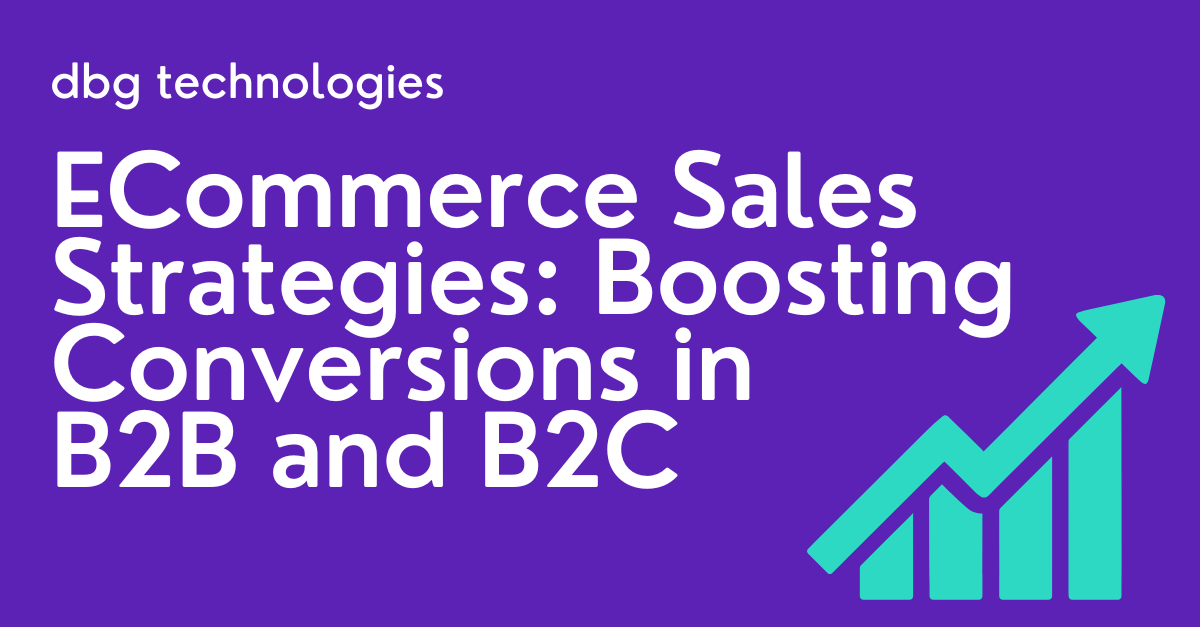 In the world of eCommerce, driving sales and increasing conversions is the ultimate goal for businesses, whether they operate in the B2B or B2C space.
In the world of eCommerce, driving sales and increasing conversions is the ultimate goal for businesses, whether they operate in the B2B or B2C space.
With the ever-growing competition and evolving customer expectations, having effective sales strategies in place is crucial to stay ahead and achieve success.
Tailoring the shopping experience to individual customers can significantly impact conversion rates. Utilise customer data to understand their preferences, past purchases, and browsing behaviour. Implement personalised product recommendations, targeted email campaigns, and customised landing pages to create a more engaging and relevant experience. Personalisation fosters a sense of connection and increases the likelihood of conversions.
A smooth and user-friendly purchase process is essential for driving conversions. Simplify the checkout process, minimise form fields, and offer guest checkout options to reduce friction and enhance convenience. Incorporate progress indicators and clear calls-to-action to guide customers through each step. Optimising for mobile devices is also crucial, as mobile commerce continues to grow rapidly.
Customers often seek validation before making a purchase. Incorporate social proof elements, such as customer reviews, testimonials, and ratings, to build trust and credibility. Highlight success stories and showcase user-generated content to demonstrate the value of your products or services. Social proof creates a positive perception and encourages conversions.
Upselling and cross-selling techniques can significantly increase average order value and overall revenue. Recommend complementary products or upgrades that enhance the customer’s experience during the buying process. Offer bundled deals or discounts to incentivise customers to explore additional options. Strategic product recommendations can lead to higher conversions and customer satisfaction.
Product pages play a vital role in the decision-making process. Optimise them by using high-quality images, detailed descriptions, and clear product specifications. Incorporate persuasive and compelling copy that highlights the unique selling points and benefits. Integrate customer reviews and ratings to instil confidence in potential buyers. A well-optimised product page increases the likelihood of conversions.
Email marketing remains a powerful tool for driving conversions. Develop targeted email campaigns that deliver personalised offers, exclusive discounts, and relevant content based on customer segmentation and behaviour. Use compelling subject lines and enticing visuals to capture attention. Implement automated email workflows to nurture leads and guide them towards making a purchase.
Responsive and reliable customer support is crucial for fostering trust and loyalty. Provide multiple channels for customers to reach out, such as live chat, email, or phone support. Respond promptly to inquiries and address customer concerns effectively. Exceptional customer support builds a positive brand image and encourages repeat purchases.
Regularly analyse data, such as website analytics, sales metrics, and customer feedback, to gain insights into customer behaviour and identify areas for improvement. Use A/B testing to experiment with different strategies and determine what resonates best with your audience. Continuously optimise your eCommerce sales strategies based on data-driven insights to maximise conversions.
